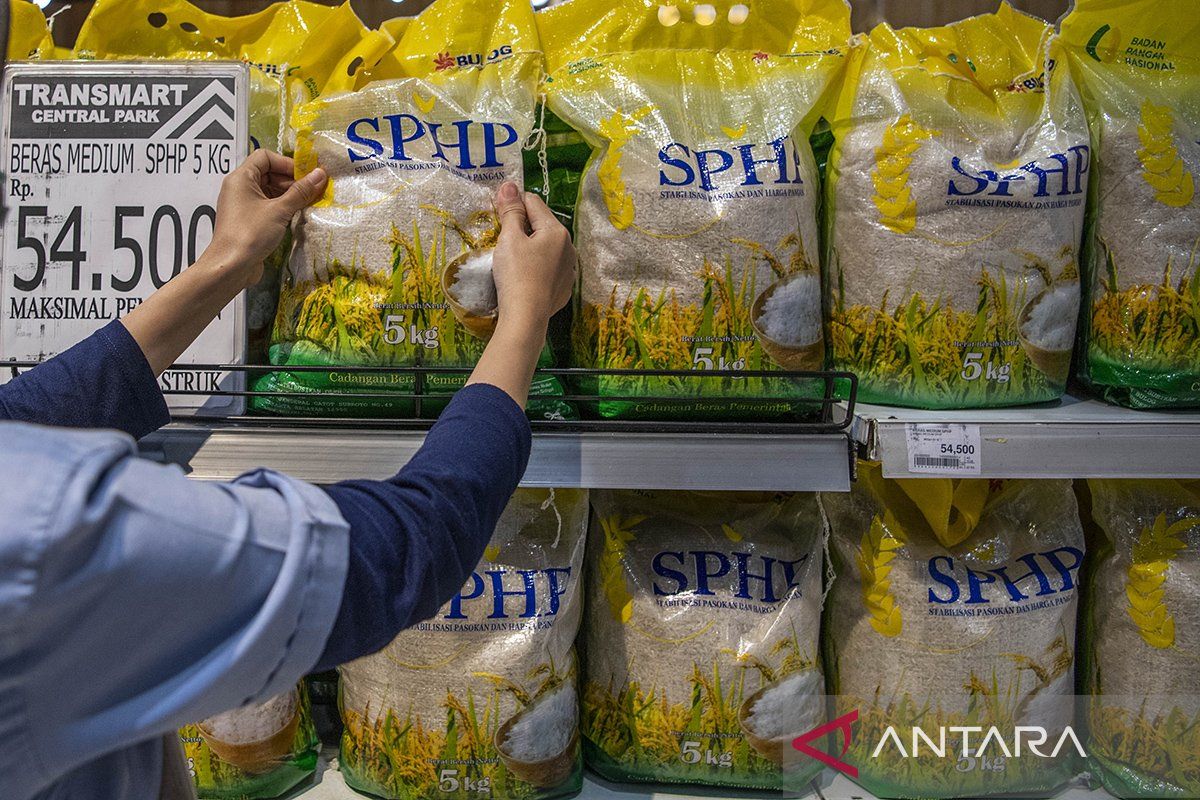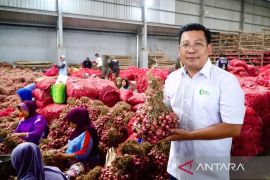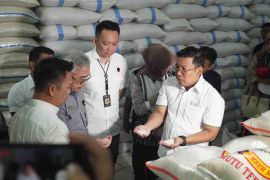Jakarta (ANTARA) - The National Food Agency (Bapanas) is working to intensify its collaboration with retailers in an effort to strengthen Indonesia's food ecosystem and industry, a Bapanas official stated on Sunday.
"Retailers play a critical and integral role in the national supply chain. Hence, a stronger retail sector will undoubtedly contribute to the further advancement of the national food ecosystem," said Nyoto Suwignyo, the agency's Deputy for Food and Nutrition Insecurity, in Jakarta on Sunday.
He noted that Bapanas had maintained its collaboration with retail business actors to ensure an adequate supply of food for the nation while implementing the Food Supply and Price Stabilization (SPHP) program to stimulate the national economy.
Suwignyo said that his agency had been partnering with the state-run logistics company Bulog to expand the distribution of SPHP rice by collaborating with major retailers, including Indomaret, Alfamart, Hypermart, Superindo, and Lotte.
SPHP rice is consistently sold at a maximum price of Rp10,900 (US$0.69) per kilogram, with a purchase restriction of two 5-kilogram packs per individual.
The intensified distribution of the rice has led to a gradual drop in prices of medium-quality rice at the consumer level. The average price of the rice across all provinces was recorded at Rp13,220 (US$0.84) per kilogram on October 1 and at Rp13,190 per kilogram on November 10.
Suwignyo said that Bapanas has also strengthened its collaboration with retailers in terms of the supervision of the quality of food products, particularly fresh plant-based foods (PSAT).
"In partnership with retailers, Bapanas maintains the safety of PSAT in circulation by conducting direct supervision and inspections to ensure compliance with food safety and quality standards," he stated.
He also mentioned that his agency had consistently guided retailers to cooperate only with suppliers authorized to sell PSAT.
Bapanas, he added, has also encouraged retailers to to contribute to the government's initiative to reduce food waste in Indonesia.
According to the Food and Agriculture Organization (FAO), an estimated 1.3 billion tons of food, or the equivalent of one-third of food produced globally, is wasted per year.
"We would like to invite all retail business actors, especially those focusing on food products, to help us promote the 'Stop Wasting Food' movement through their own methods," he remarked.
Related news: Government continues to maintain food price stability until year-end
Related news: Govt optimizes swamp land for farming to achieve food self-sufficiency










